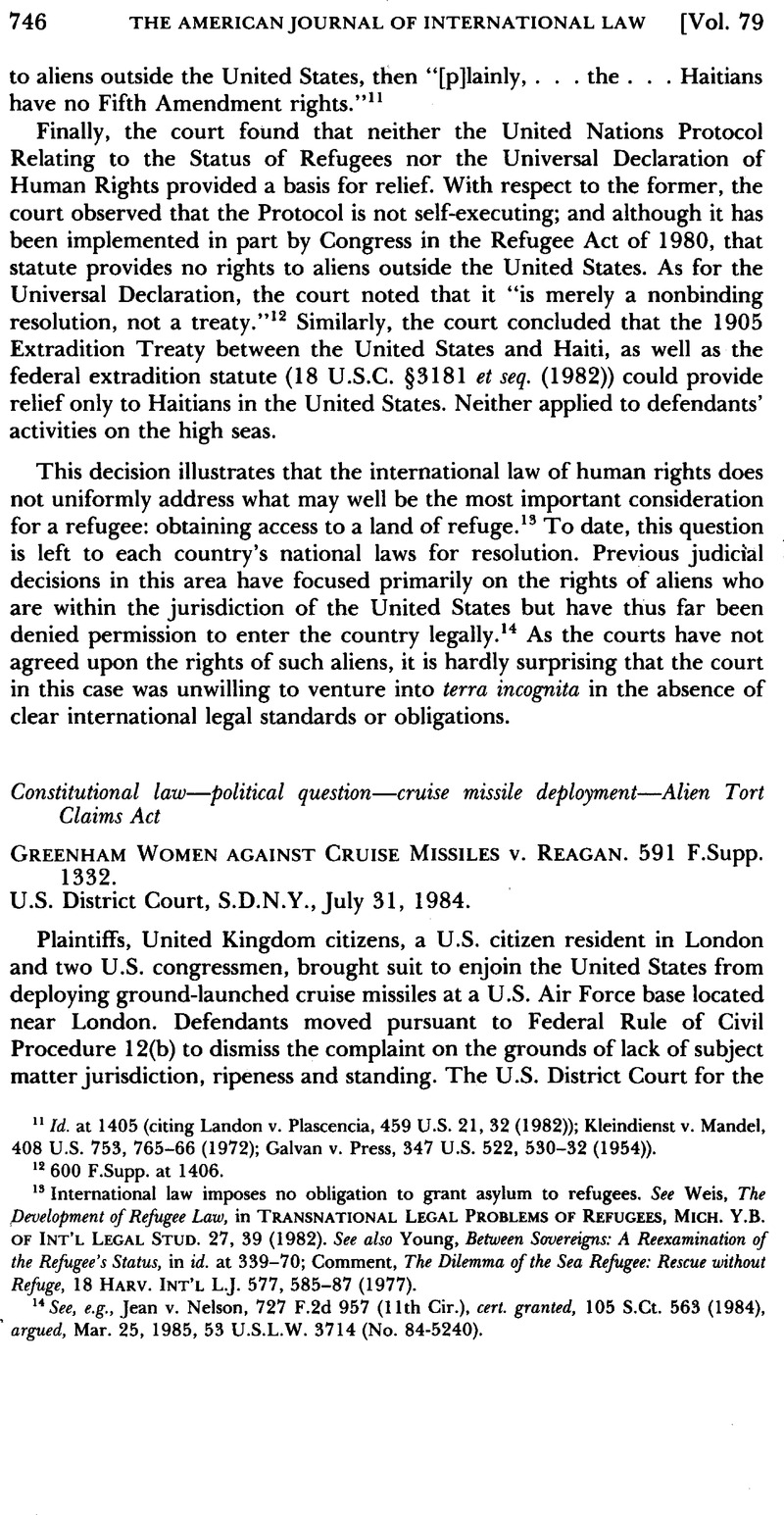No CrossRef data available.
Published online by Cambridge University Press: 27 February 2017

1 Plaintiffs contended that deployment of the missiles would contravene provisions of the United Nations Charter regarding the threat or use of force, the right to survival, crimes against peace, laws of war and the crime of genocide.
2 369 U.S. 186(1962).
3 591 F.Supp. 1332, 1336.
4 In this regard, the court relied on the decisions in Crockett v. Reagan, 720 F.2d 1355 (D.C. Cir. 1983) (per curiam); DaCosta v. Laird, 471 F.2d 1146 (2d Cir. 1973); and HoUzman v. Schlesinger, 484 F.2d 1307 (2d Cir. 1973), cert, denied, 416 U.S. 936 (1974).
5 591 F.Supp. at 1337.
6 For instance, enjoining cruise missile deployment could engender serious discord among our allies and unravel the carefully balanced deployment scheme. It could encourage the USSR to intensify its pressure for unilateral Western concessions which would seriously erode NATO’s ability to deter Moscow’s growing nuclear threat or discourage Soviet willingness to reach an arms control agreement.
Id. at 1339.
7 331 F.2d 796 (D.C. Cir. 1963), cert, denied, 377 U.S. 933 (1964).